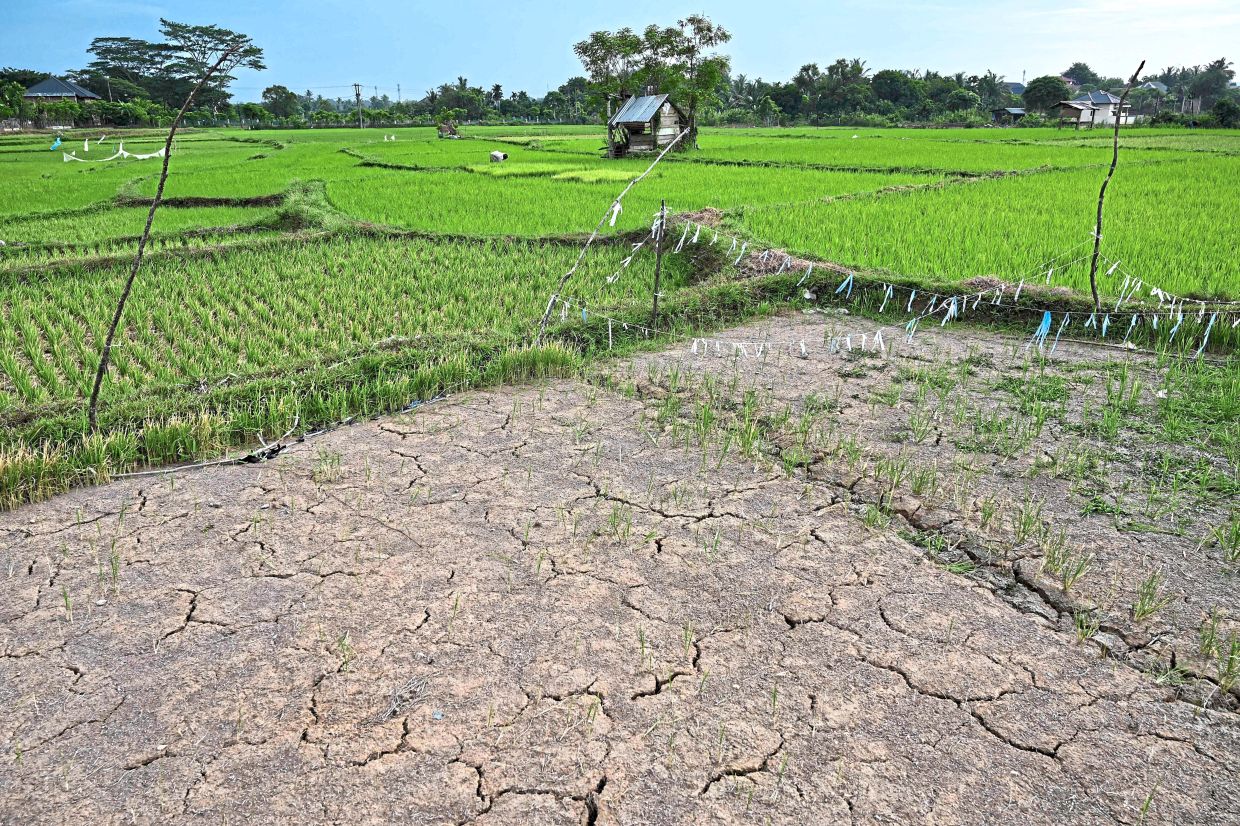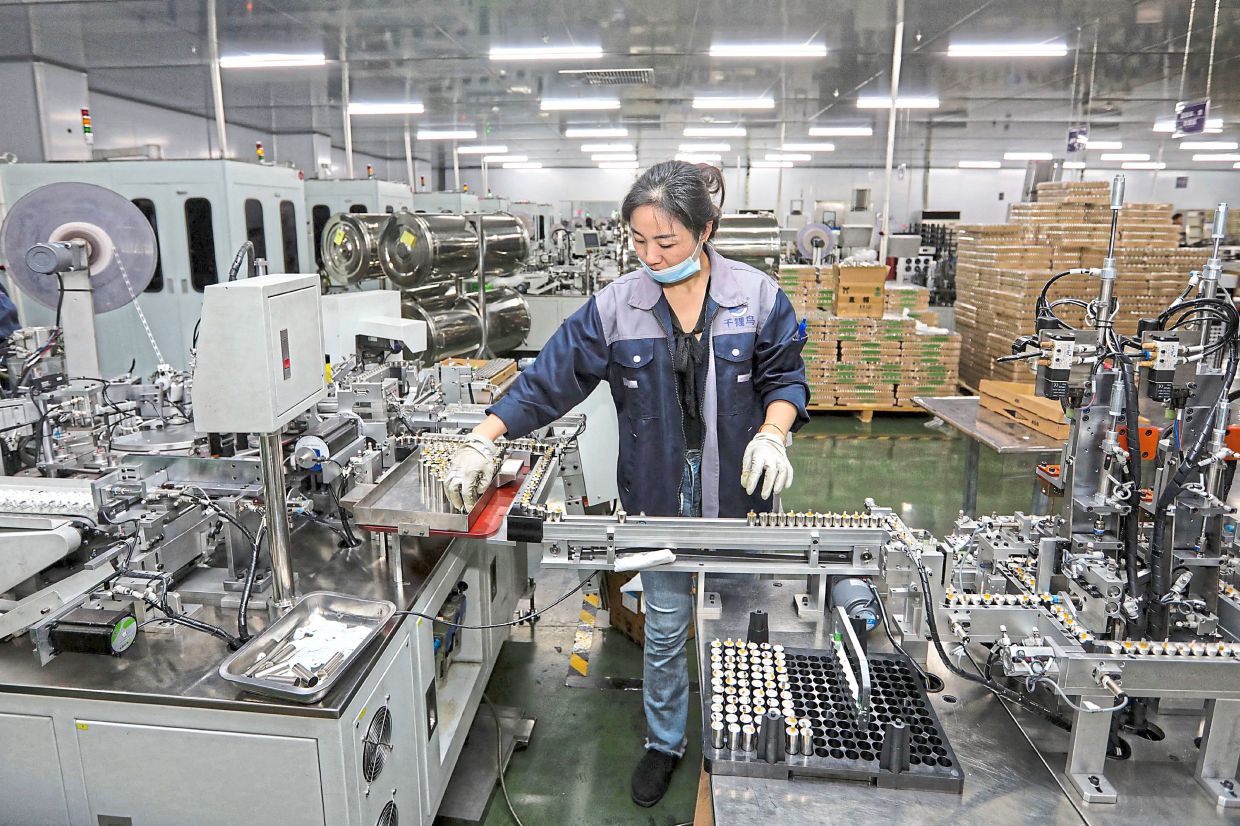
A general view shows a parched section of a rice paddy during a drought in Japakeh on the outskirts of Banda Aceh on July 14, 2024. (Photo by CHAIDEER MAHYUDDIN / AFP)
JAKARTA: Indonesian agriculture development has lagged for years as the country struggles to improve technology and human resources in the sector, with experts and farmers believing the condition will make it difficult to effectively safeguard the nation’s food security.
AA Gede Agung Wedhatama, founder of the Bali-based Cool Young Farmers (PMK) community said that the widely adopted conventional agricultural system in Indonesia only enables a hectare of land to produce five tonnes of rice, while countries with more advanced technology can produce up to 15 tonnes with the same amount of land.
PMK began in 2019 in hopes of encouraging young people to get involved in technology-based organic horticulture.
“If we compare ourselves with other countries like Japan, the Netherlands and Australia, our agriculture technology development is around 20 years behind them, and we must catch up,” he told The Jakarta Post recently.
He went on to say that smart farming, smart irrigation systems, precision farming and artificial intelligence had effectively reduced the production costs in those countries, which could help improve profits and therefore the welfare of smallholders.In Indonesia, however, farmers face steep production costs and low profitability.
“This is an important issue. There must be a holistic solution. In the future, the government must encourage smart farming to become a solution for our agriculture in Indonesia,” Agung said, who is also the founder of the Bali Organik Subak grocery mobile application.
To improve the incomes of farmers, he proposed wide implementation of intercropping so that farmers would be able to harvest different plants daily, weekly, monthly and annually.
Last year, the government tasked the State Logistics Agency with importing 3.5 million tonnes of rice before directing the agency to procure another 3.6 million tonnes this year, citing a need to brace for a poor harvest caused by the impact of the El Nino climate phenomenon.
The National Food Agency in June projected that the country would need to import a total of five million tonnes of rice this year, but later retracted the projection.
In addition to rice, the government also procured 100,000 tonnes of other commodities, including sugar, garlic and corn, as local production was unable to meet domestic demand, a trend that has persisted for years despite vows to achieve self-sufficiency.
Muhammad Osribillal, an industry and regional analyst at Bank Mandiri, said the country also faces a lack of people willing to work in agriculture, especially those from the younger generation.
Furthermore, those who are farming might not want to incorporate technological advancements.
“The missing link in the agricultural sector is that our human resources are lacking the adequate skills to advance the industry.
“All stakeholders must be able to attract Indonesian youths to participate in the agricultural sector,” he said.
“The likelihood of a (widespread) technology implementation in agriculture is expected to increase with a more intense effort to get youth into the sector by providing them with skills training and education.” Indonesian millennial farmers, those 44 years old or below, only comprised 9.85 million individuals in the sector, less than half of those 45 or older at 19.5 million individuals, a Statistics Indonesia report from December last year shows. — The Jakarta Post/ANN










































